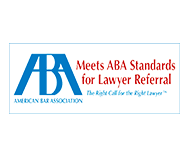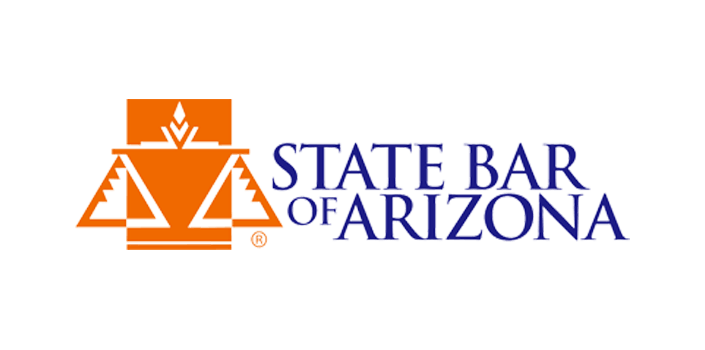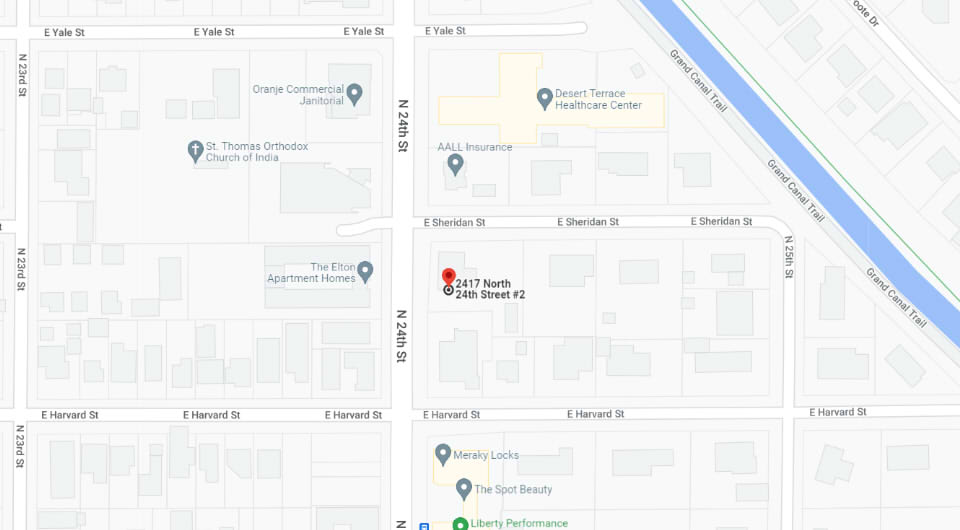Nurses and doctors prescribe medications to millions of patients yearly. In most cases, medicines are essential for fighting illnesses and maintaining good health. But there are cases where medical practitioners commit prescription errors. In a case like this, drugs can severely affect a patient's health or result in wrongful death.
Irrespective of how busy a physician or any other medical practitioner is, there is no valid excuse for making medication or prescription mistakes. If a medication or a prescription error has caused you severe health complications or resulted in the wrongful death of your loved one, you are entitled to seek damages for your losses and injuries. To recover maximum compensation, you will need help from a skilled medication and prescription errors personal injury attorney.
At Phoenix Personal Injury Attorney Law Firm, our lawyers channel our resources to the most complex and severe personal injury cases. We boast the experience and client dedication to handle prescription error cases involving wrongful death and severe injuries. We will fight tirelessly to obtain maximum compensation for you while you focus your efforts on your recovery. Call us for a cost-free consultation with one of our expert attorneys.
Medication and Prescription Errors Overview
Medical malpractice can be in many forms. Generally, medical malpractice describes any instance when a healthcare professional fails to uphold the acceptable standard of care for a particular case. Prescription mistakes are a prevalent form of malpractice.
The U.S. FDA (Food and Drug Administration)'s Division of Medication Error Prevention and Analysis describes a medication mistake as a preventable occurrence that may lead to or cause inappropriate drug use or patient harm when the medicine is under the control of a healthcare professional, consumer, or patient.
Medication mistakes with over-the-counter and prescription drugs can happen when:
- Prescribing drugs.
- Packaging, naming, and labeling the medication.
- Communicating the prescription.
- Formulating the drug.
- Dispensing the medicine.
- Distributing the drug.
- Performing education about and administration of medicine.
- Using medication.
- Monitoring the dispensation of the drug.
Physicians who prescribe drugs to patients should ensure they prescribe the right medicine for the condition of the patient and account for all possible complications or side effects with other drugs the patient could be on. Pharmacies should ensure they give out correct medications in proper dosages to the rightful customers. Pharmaceutical companies must ensure they have labeled medicines appropriately and packaged them in correctly-labeled boxes.
Medication and Prescription Error Statistics
Most people believe medication and prescription errors are trivial issues affecting a small percentage of patients who take medicines. According to statistics, 400,000 prescription mistakes occur annually in hospitals and 800,000 yearly in nursing homes and long-term care facilities. That means over one million patients admitted to a care facility or hospital to obtain assistance for their medical issues are instead hurt.
Per the FDA, about 1.3 million citizens in America are hurt by medication and prescription mistakes. The NCBI (National Center for Biotechnology Information) adds that seven thousand to nine thousand die annually due to prescription and medication errors. Most of these deaths and illnesses are preventable by following proper procedures and competent care. Per the NCBI, more than 50 percent of medication mistakes occur during the ordering stage.
Medication mistakes are a serious problem that can mess up a patient's health and that of their family. The mistakes could sometimes result in wrongful death or life-changing ailments. If you or your loved one has suffered due to a medication error, it is time to talk to a lawyer.
Common Types of Medication and Prescription Errors
Prescription medications can be strong healers when administered and used properly. Sadly, mistakes are too common. Sometimes the mistakes are detected before severe injury occurs, and sometimes the medication leads to catastrophic consequences. Common forms of medication and prescription mistakes a medical practitioner could commit include the following:
- Giving patients the wrong instructions for taking the medications.
- Prescribing medicines that are harmful to take alongside other prescribed drugs taken by the same patient, in other words, the failure to account for harmful drug interactions. Physicians must ensure any drugs they prescribe will not interfere with any other drugs a patient might already be using.
- Dispensing or prescribing the wrong drugs for a medical condition. Prescribing physicians should ensure they prescribe the right medicine, and pharmacies should dispense drugs to patients correctly. Most pharmaceuticals share similar names; thus, it is critical to pay close attention if there is any room for doubt.
- Dispensing or prescribing the right drugs but the wrong frequency or dosage— some medications are available in different dosages. A patient can suffer an adverse reaction if the dosage prescribed to them is too large or too small.
- Filling in the wrong dosage or prescription.
- Pharmacists failing to notice the physician’s mistake.
- Failure to observe the effect a drug has on the patient.
- Failing to carefully evaluate the effect, risk, and need for drugs.
- Ignoring a patient’s allergy history. Some patients are allergic to given drugs and substances. Therefore, physicians should consider a patient's allergy history when prescribing medication.
- Failing to track a patient's drug intake.
- Failure to clarify side effects. A patient is entitled to make informed decisions regarding their healthcare. Should a physician fail to explain potential adverse side effects that would have discouraged a patient from taking the drug had they known of the side effects, the physician has effectively broken informed consent law.
- Mislabeling drugs— pharmacies should ensure their inventories are accurate. Mislabeling a drug can adversely affect multiple patients.
- Filling or prescribing a dangerous drug due to a patient's condition.
- Under- or over-prescribing drugs. If a patient does not receive adequate drugs, the drugs will not have the needed and intended effect. On the contrary, if a doctor prescribes more drugs than are necessary, it could result in overdose, bleeding, addiction, brain damage, or death.
- Failing to acquire or review a patient's medical history. How effective medication will be on a patient is based not solely on what other medication the person is using but also on their full medical history. The doctor must obtain a patient's medical history and review it before prescribing medication.
Reasons for Medication and Prescription Errors
Prescription mistakes happen due to negligence by a prescribing nurse or doctor. The most prevalent type of negligence is issuing the wrong prescription due to distraction. The NCBI states that 75% of prescription errors are made due to the distraction of healthcare professionals. At times overworked or extremely busy healthcare professionals become distracted and give incorrect prescriptions, at times to a catastrophic outcome.
Another reason why medication errors occur is bad handwriting. Even though digital systems are becoming widespread daily, some healthcare professionals still issue traditional pen-and-paper prescriptions. Poor handwriting from a nurse or doctor could lead to a pharmacist giving incorrect medication, listing inappropriate dosage, or listing the wrong frequency.
The labeling of drugs can also be a problem that results in disastrous results. Sometimes, pharmacies mislabel drugs, showing incorrect medicine or even inappropriate dosage. A mistake by a pharmaceutical company may lead to a drug being put in the box for another medication. These errors could lead to a person taking the wrong medication or dosage of a drug. All these errors are preventable. When they occur, health could be lost or compromised.
Other reasons for medication errors include:
- Errors keying in patient info into the computer.
- Prescriptions matched with the wrong patient because they were prescribed remotely.
- Abbreviations interpreted differently.
- Misinterpreted metric measurements.
- Interruptions while keying in changes on the computer or mobile devices.
- Pharmacists ignore warnings concerning drug interactions or high dosages.
- Formulation errors.
- Choosing the wrong medicine from a drop-down list.
Since there exist so many formulations for given medications, the chances of confusion are high. At times patients are given the incorrect formulation. Or they are given the right formulation with the wrong instructions. Since formulations impact the body differently, substitutions could be severe.
Liability for Medication and Prescription Errors
Several parties can be responsible as far as medication and prescription mistakes are concerned. These include a nurse, doctor, pharmaceutical company, and pharmacy or pharmacist.
It is critical to keep in mind that some medication mistakes result from faulty products. When pharmaceutical companies release dangerous or defective medications, any damage to patients would generally result in product liability lawsuits or claims. However, after a drug is released to the market, it is generally valid to assume it is safe for use.
Prescription medication mistakes comprise medical malpractice lawsuits/claims when pharmacists or doctors commit mistakes when prescribing the drugs. Your lawyer can investigate your case and help you determine the liable party.
Liability in medication and prescription error cases falls upon the part accountable for the mistake. If a physician prescribes incorrect medication, there is no way the pharmacist would know the drug is not suitable for the patient. Therefore, liability would fall upon the physician. If a physician prescribes the right drug and dose, but the pharmacy commits a mistake in filling the prescription, liability will fall upon the pharmacy.
Proving Liability
Like other personal injury cases, a successful lawsuit or claim against a party for prescription or medication errors must begin with proving that the party was indeed liable. Proving Liability entails showing that the party was negligent. There are four elements you must establish to prove the party was negligent. They are:
- Duty of care— the first step of proving negligence is asserting that the party in question owed you or your loved one a duty of care as their patient. Proving the duty of care is the easiest part. The law obligates pharmacists and doctors to act prudently and reasonably per the generally accepted medical standards when helping patients. They must follow correct procedures to ensure the right medication is prescribed, a prescription is filled correctly, and the patient is not given dangerously conflicting medicines.
- Violation of duty— the next element to demonstrate is that the party violated their duty of care. If the pharmacist or doctor fails to do what they are required to do, for example, by administering the wrong medication, they are considered negligent. Therefore, they should be held responsible for any resulting injuries. To show a violation of duty, your lawyer can help you review your patient records, surveillance videos, pharmacy records, and doctor records and interview witnesses. Your lawyer can also subpoena a medical expert to review all the evidence and your present condition to prove the party violated their duty by committing a medication and prescription error.
- Causation— your lawyer can then help you consult with a medical expert drawing reference to your health records to prove that the liable party's violation of duty led to your injuries or medical condition.
- Damages— lastly, you must prove that your injuries or medical condition made you suffer financial damages for which you seek compensation.
After establishing these four elements, your lawyer will help you seek compensation from the liable party's insurance provider. If the insurance company fails to negotiate a fair settlement, you can bring a lawsuit before the court. The jury or judge will assess the evidence and determine the compensation amount you deserve.
Recoverable Damages In a Medication and Prescription Errors Case
A prescription medication mistake can cause patients severe health complications, create new medical problems, worsen existing conditions, and result in more time-consuming and intensive recovery periods. Patients harmed by prescription medication mistakes can pursue various damages, for example, the extra medical costs incurred due to the error, pain & suffering resulting from the error, and lost wages due to the missed work time.
Working with the right lawyer is a huge asset if hurt by a medication error, as they will assist you in maximizing your recovery.
Medication and Prescription Errors In Nursing Homes
The chain of individuals administering and prescribing medicines to residents in nursing homes is usually long and sometimes inconsistent. A nursing home resident can be affected at any point in the chain by taking the wrong drugs, improperly administered medication, or any other medication error.
Most nursing homes are understaffed. The staff administering drugs to residents are often overworked and tired. When so few individuals are compelled to handle drug administration, staff may feel rushed, become distracted, and commit mistakes such as:
- Administering expired medications.
- Overdosing and underdosing.
- Failing to shake, mix, or roll the medicine.
- Dividing a pill that should not be split.
- Skipping a dose or not giving adequate medication.
- Administering the wrong medicine or strength of the drug.
- Not applying the correct technique to give medication.
- Administering medication at the wrong time or rate.
- Failing to administer eye drops correctly.
- Failing to give sufficient food or antacids with the drug.
- Incorrectly or inaccurately documenting the medicine.
- For sublingual medications, having the resident swallow them.
- Failing to provide adequate liquids with medicines.
- Failing to monitor a resident after administering the medication.
- Following the incorrect medication pass routine.
Other Forms of Medication Errors In Nursing Homes
Other mistakes with drugs involve more intentional or instead of accidental conduct by the staff in nursing homes. Examples of deliberate medication mistakes include:
- Medication borrowing— during medication pass, a staff member may realize that a medicine a resident requires is missing. They, therefore, borrow the drugs meant for another person instead of going back to obtain the appropriate medicine for the person undergoing treatment. This behavior may confuse the medication pass system in several ways, particularly if the staff members do not document the borrowing.
- Diverting medication— a nursing home member steals the drug for personal use or to sell to another person.
- Ignoring a doctor's order— for some reason, a nursing home staff member discontinues a resident's medication, changes the doctor's order, or adds drugs the doctor did not prescribe to the resident.
Since the nursing home is in charge of hiring, supervising, or training all of its staff, it can be held responsible for any complications resulting from medication mistakes.
Tips to Avoid Medication and Prescription Errors
As a medical consumer, you must inform your doctor about all the medications you are taking so they know the possible interactions. Additionally, it is helpful that you fill all your prescriptions at the same chain, so one computer system monitors drug interactions.
Double-check the dosage and label on the medication when you pick up your prescription. You can open the drug container and check the drug to confirm it matches your last prescription or is the same as shown or described by your physician. Lastly, asking questions when you pick up your prescriptions is critical to keep yourself safe.
Find a Competent Medication and Prescription Personal Injury Attorney Near Me
Several parties can be involved as far as medication errors are concerned. At Phoenix Personal Injury Attorney Law Firm, we are highly experienced in investigating these cases and determining the liable party. If a medical error has caused you severe injury or the wrongful death of your loved one, you can trust us to help you recover maximum compensation. At the same time, you focus on resting and recovering from your injury. Obtaining the best possible settlement deal for you is our top priority. Call us at 602-641-9589 for a consultation where we will evaluate your case and give you a chance to share all the details.










